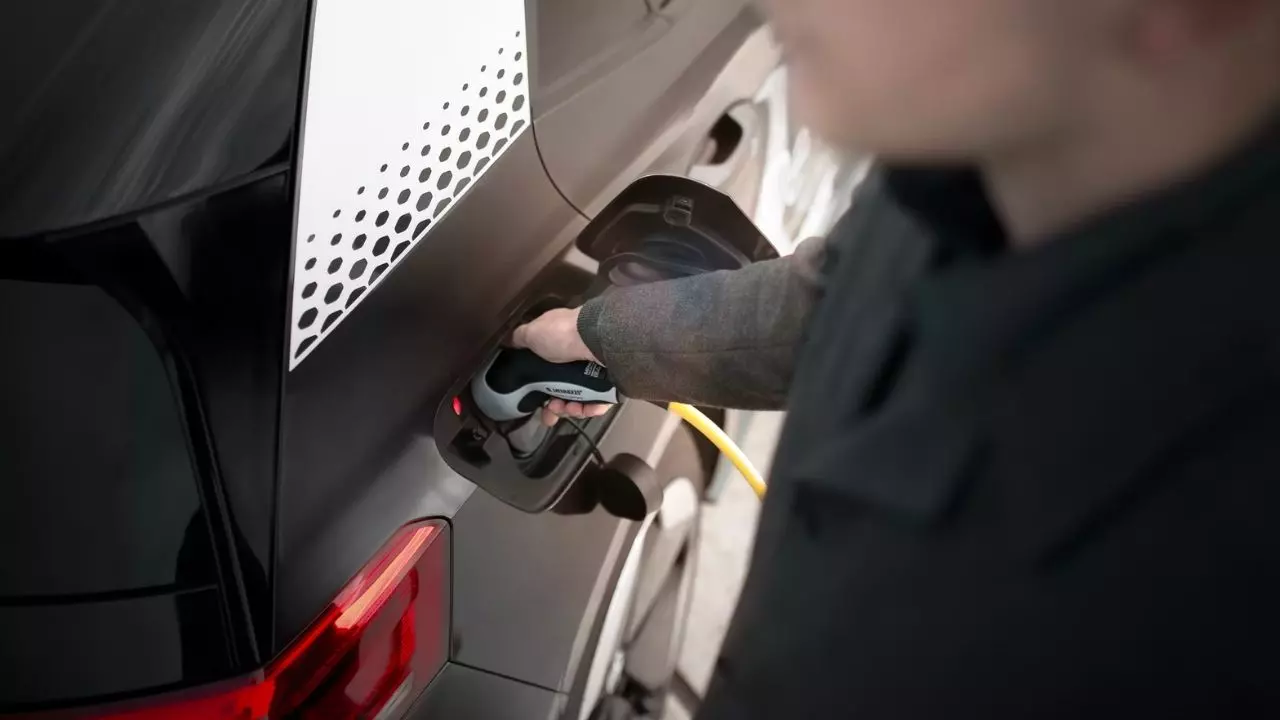Electric car chargers are an essential tool for those who have made the switch to electric vehicles, but the question remains: are electric car chargers waterproof? Rain or shine, it’s important to protect your investment and ensure the charger is safe to use. In this post, we’ll explore the issue of electric car chargers and water, examining topics such as waterproof ratings, outdoor charging, and rain protection. Discover solutions and strategies to keep your electric car charger functioning safely and efficiently, no matter the weather.
Understanding Waterproof Ratings for Electric Car Chargers
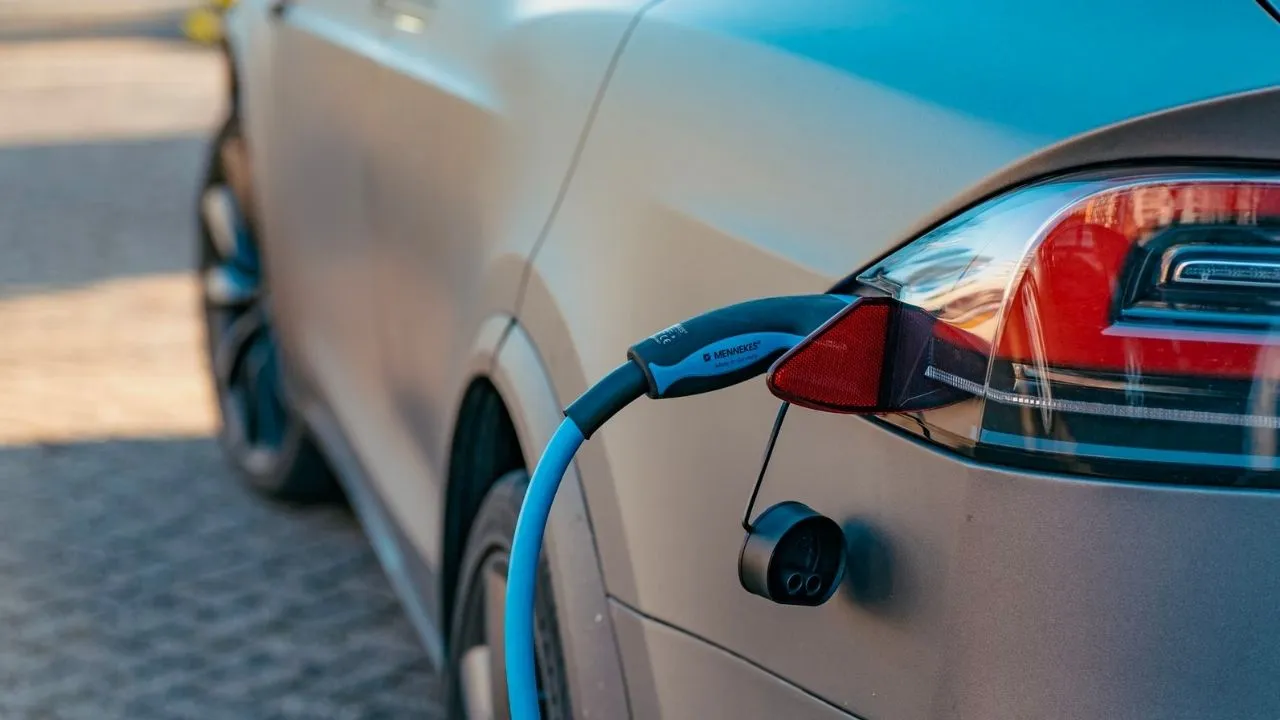
Electric car chargers have become increasingly popular as more people switch to electric vehicles (EVs). However, charging in wet or dusty environments may damage the charger’s internal components, causing high maintenance costs. To solve this issue, electric car chargers have ingress protection (IP) ratings that measure the degree of protection the charger provides against external elements such as water and dust.
The IP rating is made up of two digits. The first digit represents the level of protection against solid objects, and the second digit represents the level of protection against moisture. For instance, IP54 means the charger is protected against dust limited ingress and no harmful deposits, and it’s protected against water splashed from all directions, limited ingress permitted. You can find a detailed IP rating chart here.
Electric car chargers also have an impact protection rating (IK rating) that measures the degree of protection against external mechanical impacts. The ratings range from IK01 to IK10, with IK08 being the most common for electric car chargers. It can withstand an impact of 5 joules (equivalent to the impact of a 1.7kg mass dropped from 300mm above the impacted surface).
EV drivers in colder climates should invest in all-weather indoor/outdoor chargers as they are built to withstand extreme temperatures.
There are various ratings for EV chargers, from IP54 and lower to IP67. If you’re charging your EV indoors, you can buy a charger with an IP54 or lower rating. However, if you’re charging your EV outside, you should get a charger with at least an IP66 rating. IP66 ensures that the charger is protected against strong jets of water, such as rain.
Electric car charger manufacturers have come up with waterproofing solutions, such as rain-resistant chargers and electric car charger enclosure waterproofing, to prevent any water damage to the charger’s internal components. Investing in a waterproof EV charger is essential as it ensures that your charger lasts long and reduces servicing and maintenance costs.
Can Electric Car Chargers Get Wet? Risks and Solutions
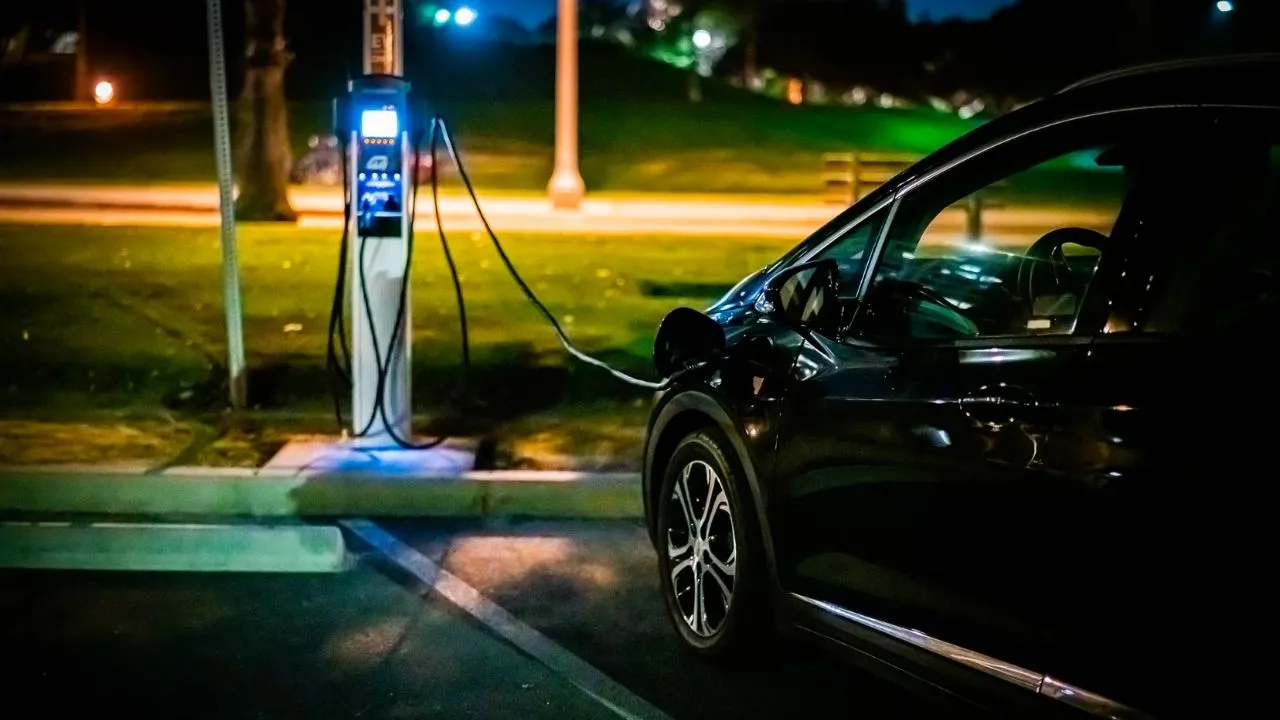
Electric vehicles have many benefits, including their environmental friendliness and energy efficiency. One of the concerns that many people have when it comes to charging their electric vehicles (EVs) is whether the chargers can withstand exposure to wet conditions. Here, we will dispel any myths and explain why you can charge your EV in the rain without any problems.
Electric car chargers are waterproof. In fact, all electric vehicle chargers are designed to be waterproof. The charging ports on EVs are specifically made to be weatherproof and water-resistant, meaning that the charging systems can handle even the heaviest rainstorms. The chargers are made with waterproof materials and are sealed against moisture to protect the car, the charger, and the user from any potential damage.
Despite the fact that electric car chargers are waterproof, many people still worry that they might not be able to withstand exposure to wet conditions. The truth is that you can charge an electric car in the rain, and it is perfectly safe to do so. The charging components are entirely sealed and built to withstand water intrusion, so there is no danger of electrocution. Charging your EV in any weather condition is 100% safe.
It’s essential to make sure that the electric car chargers you use are rated for outdoor use. The chargers should have an Ingress Protection (IP) rating of at least IP54, which means they are resistant to dust and water splashes from any direction. If you plan to install an EV charger outdoors, it is recommended to use a charger with a higher IP rating, such as IP66, which means the charger is protected against powerful water jets and heavy seas.
Whether you are charging your EV at home or using a public charging station, you can rest assured that the chargers are specifically designed to withstand the elements. EV charging points that you use at home are perfectly safe to use in the rain. Just make sure your home charger is properly installed and that your car is plugged in correctly, and you’ll be good to go – rain or shine.
Public EV charging points are also safe to use in the rain. These chargers are built to withstand a lot and are 100% designed for outdoor use. Even if you are caught in a downpour or dealing with a little drizzle, don’t let the weather stop you from charging your car. Simply charge up as you need and keep your focus on getting to your destination safely, especially in adverse weather.
If you are planning to install an electric car charger outdoors, there are some additional measures you can take to protect your charger from the elements. One option is to install an enclosure around your charger, which can provide additional protection against rain and other weather conditions. The enclosure should be made of waterproof materials and sealed to ensure that the charger is protected from moisture.
Another option is to install a charger with a higher IP rating, such as IP66, which offers protection against powerful water jets and heavy seas. In addition, some chargers come with built-in rain protection features such as drip loops, which are designed to prevent water from running down the cable and into the charger.
How to Safely Charge Your Electric Car Outdoors in Any Weather
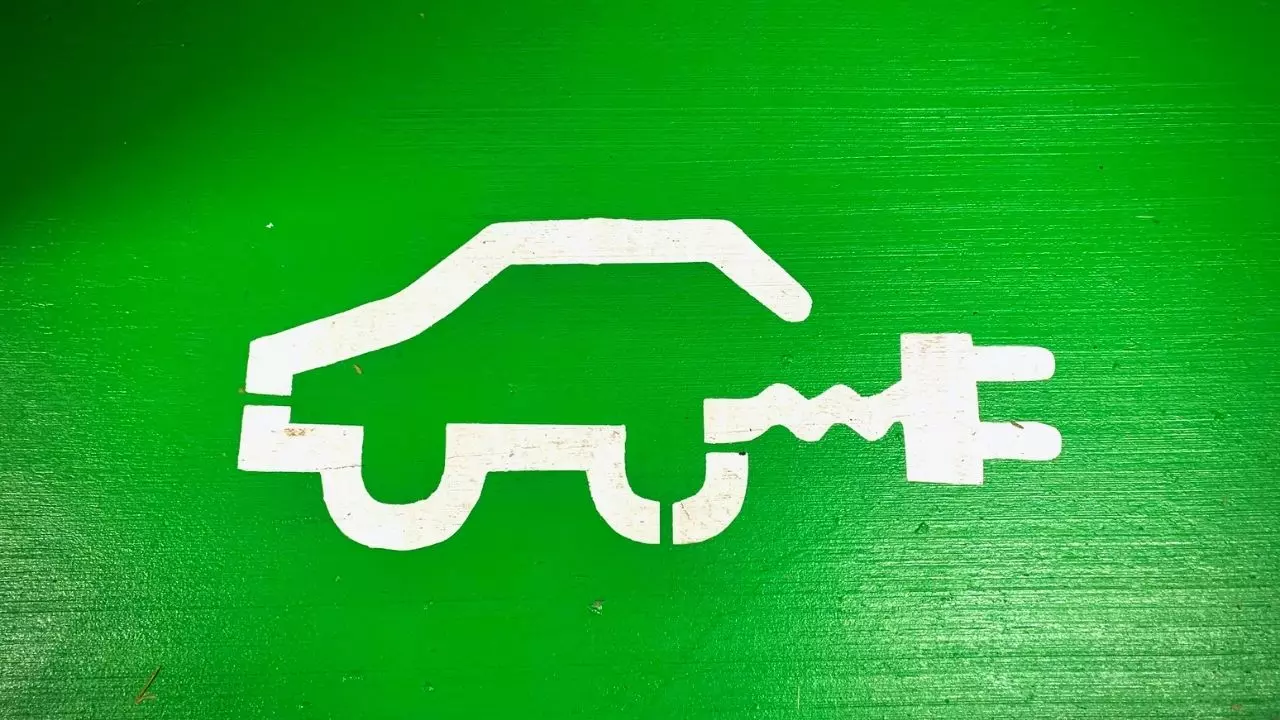
One of the most common questions that EV owners ask is whether their electric car chargers are waterproof. It’s a valid concern, especially if you live in an area that experiences frequent rain or snow. In this section, we’ll explore the safety of outdoor electric car chargers and what you can do to protect them in wet conditions.
While outdoor EV chargers are waterproof, it’s best to avoid the charging plug from sitting in water or the charging port from being covered with snow. However, if the charging cord and port are properly positioned, they should be safe in rain, snow, sleet, and hail. To ensure that EVs and charging stations can withstand intrusion from water or dust, they are rated according to their Ingress Protection rating (IP rating). An IP rating has two numbers: the first number indicates how well the EV or charger prevents dirt or dust from getting into the device, while the second number refers to how well it can withstand liquids.
For example, the Audi e-tron model has an IP rating of 67. It can withstand submersion in water at 1 meter for 30 minutes, making it resistant to splashes and rain. The Enel X JuiceBox charging station, on the other hand, has an IP rating of 44, which means it can withstand intrusion by dirt and dust particles larger than 1 millimeter and splashing water, like horizontal rain.
To ensure safety, electric car chargers must meet safety standards set by the National Electrical Code (NEC) and Underwriters Laboratory (UL). All JuiceBox charging stations meet the safety requirements of NEC Article 625 and UL 2594, and they also meet NEMA-4 standards. This includes a gasketed door enclosure for indoor or outdoor use, which provides a degree of protection against windblown dust and rain, splashing water, hose-directed water, and ice that forms on the enclosure.
If you live in an area that experiences frequent rain or snow, there are some precautions you can take to protect your outdoor EV charger. For instance, you can purchase an electric car charger enclosure that is specifically designed to protect the charger from rain, snow, and other weather elements. You can also install a waterproof cover over your charger to keep it dry in wet conditions.
Protecting Your Electric Car Charger from Rain and Moisture
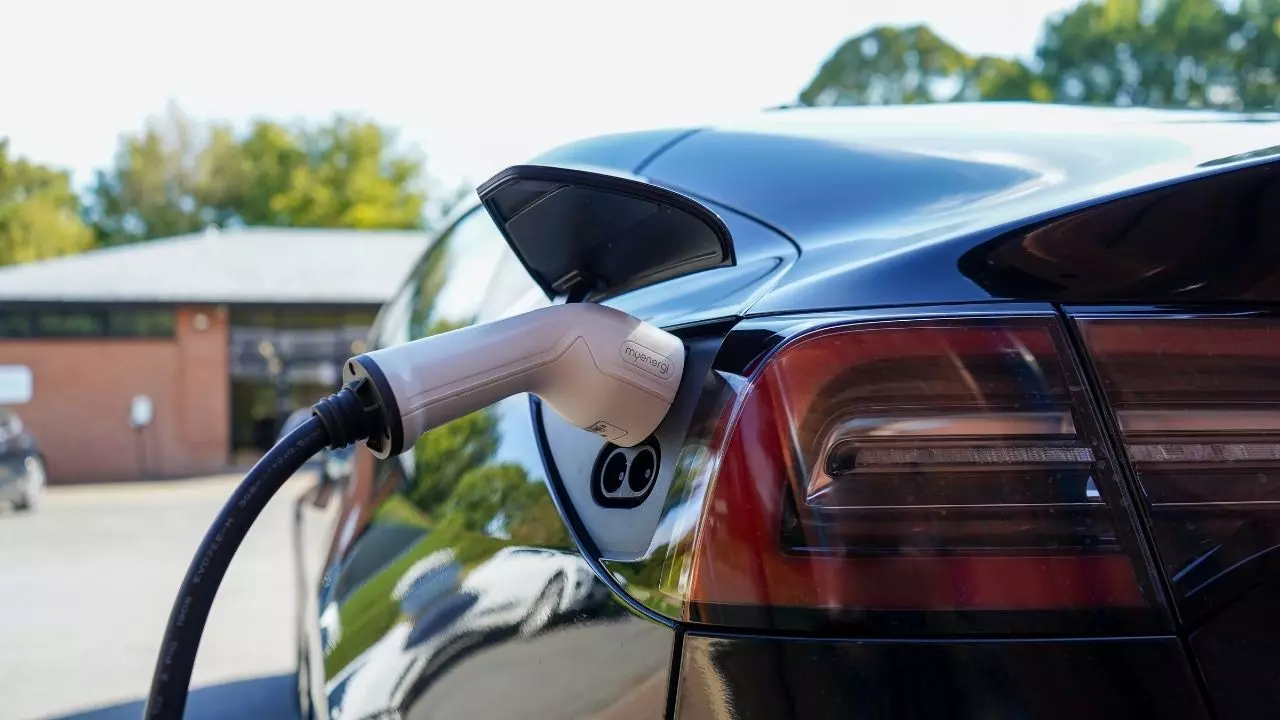
Are electric car chargers waterproof? Can electric car chargers get wet? These are common questions that EV owners ask, especially when charging their vehicles in wet conditions. It’s important to protect your electric car charger from rain and moisture to avoid potential damages to your vehicle’s charging system.
One solution to protect your EV charger is to use a holster. This will keep your charger safe and functional, even when charging outdoors. It’s particularly useful when you’re at a service station or attending an outdoor event.
If you live in desert-like areas where your charger is exposed to dirt, a holster can also provide protection and keep your EV charger working smoothly.
During monsoons or heavy thunderstorms, charging your car can be a tricky business. Current surges can cause heavy damages to the charger and internal circuits of the car. It’s important to charge your car in a dry and covered place, such as a shed or garage, away from the rain. Make sure the charger is dry and clean to avoid short-circuits.
Always use an OEM-certified or the original charger that came with your EV. These chargers come with built-in protective layers to work efficiently during extreme weather conditions.
Water or moisture can cause corrosion and rusting, shortening your car’s life and efficiency. To prevent this, park your car in a dry place whenever possible and keep the windows rolled up and the insides of the car dry. Use tissues or newspapers to dry up any moisture and keep a hair dryer handy for larger wet areas. Once parked in the garage or shed, roll down the windows or keep the doors open for a while to let the cabin breathe and get rid of any trapped moisture.
You can also cover your car with a waterproof cover to protect the battery and internal circuits from water or moisture. This will help your car to function at its full potential for much longer.
It’s important to note that 100% prevention from water-contact is unachievable unless you keep your car in a waterproof container forever. For added protection, consider getting water-damage protection when buying your electric car insurance. This will ensure that your car is covered in case of water-related damage, such as short-circuits or rusting.
When purchasing an electric vehicle charging cable, make sure to choose an appropriate cable and pick the correct connector type and suitable current rating for your car. Also, select a cable that can charge with the maximum AC charging rate your car can accept. Consider getting a higher rated cable for future use.
It’s also important to choose a suitable cable length. Calculate the distance from your home charging unit or from the usual charging point that you use and then add a little extra room for secure charging. Don’t use the cable excessively stretched to charge your electric car.
For charging stations that don’t have an integrated cable, always remove the cable when you’re done charging from both sides. Disconnect the cable from the vehicle side first and then the station side. This also applies to portable charging cables you can use with household sockets. Don’t leave them plugged in if not in use.
By taking these precautions and protecting your electric car charger from rain and moisture, you can ensure that your EV stays in good condition and is always ready for a smooth and safe ride.
Innovative Solutions for Waterproofing EV Chargers
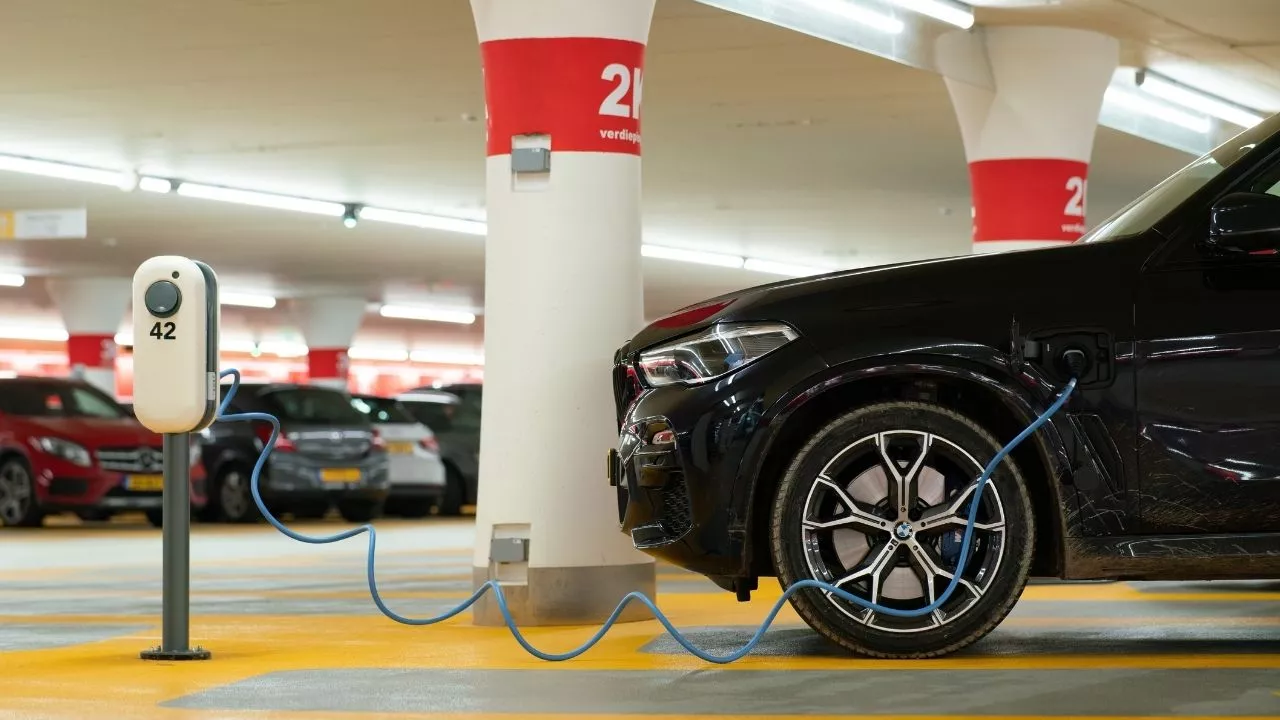
As the demand for electric vehicles (EVs) and charging stations increases, so does the need for a robust and reliable charging infrastructure. One crucial factor that needs to be considered in this regard is the waterproofing of EV chargers. Many people are concerned about the safety of charging their EVs in wet conditions, and whether the electric car chargers waterproof or not.
Outdoor electric car chargers waterproof ratings are an essential consideration when selecting a charger for outdoor use. The higher the rating, the better the charger’s protection against environmental factors such as water, dust, and moisture. Electric car charger enclosure waterproofing is another critical aspect to ensure that the charger is safe and reliable in wet conditions.
Henkel’s innovative portfolio of materials offers excellent solutions for electric car chargers waterproof. Their thermal management materials, gasketing, potting, and conformal coating provide robust protection against dust, moisture, and other environmental factors, while also providing additional toughness and durability. With Henkel’s material solutions, EV chargers can be protected from the elements, ensuring reliable and long-lasting performance.
EV charger waterproofing solutions are not only crucial for the safety of the users but also for the long-term viability of the EV charging infrastructure. As more people switch to electric cars, there will be an increase in the demand for large, ultra-rapid EV charging stations. To avoid bottlenecks and overloading at peak load times, these charging stations need to be reliable and safe, even in wet conditions.
In conclusion, rain-resistant EV chargers are essential for the reliable and safe charging of electric vehicles. Waterproof EV chargers are necessary to protect against environmental factors such as water, dust, and moisture. Henkel’s innovative solutions for EV charger waterproofing provide excellent protection and reliability, ensuring the long-term viability of the EV charging infrastructure.
Conclusion
In conclusion, the increasing adoption of electric vehicles and the need for a robust charging infrastructure has highlighted the importance of waterproof and rain-resistant electric car chargers. With the forecasted growth of the EV charging station market, it is essential to prioritize reducing manufacturing costs while simultaneously increasing the reliability and durability of the equipment. Henkel’s innovative portfolio of materials offers solutions for waterproofing and protecting EV chargers from environmental factors such as dust and moisture. By using these solutions, we can ensure that electric car chargers are reliable and long-lasting, enabling better accessibility to EV charging infrastructure and supporting the transition to a sustainable future.
